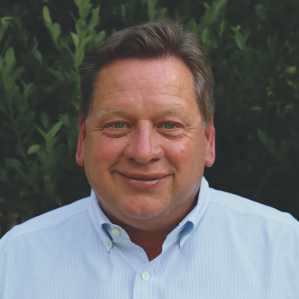
As the world marks Suicide Prevention Day today (Sept. 10), evangelist Dean Sikes is calling attention to the struggles of young people and pointing them to healing and hope in God’s love.
Sikes, founder of the Tennessee-based “You Matter” ministry and a survivor of sexual abuse, has spent more than three decades speaking in schools, prisons, churches and youth centers around the world. He has written 33 books, delivered 4,200 public messages, produced online videos and TV programs with 150 million views, and says his message has helped prevent more than 156,000 suicides and led 300,000 people to Christ.
In an exclusive interview with Christian Daily International, Sikes explained the purpose of his latest book, You Matter: Finding Hope and Meaning in Everyday Life (Fedd Books), which he describes as the legacy of his ministry. He said the book is grounded in Job 33:4: “The Spirit of God has made me; the breath of the Almighty gives me life.”
“Our whole life is just focused on getting this message that God loves you. He’s got a plan for your life. And because you’re breathing, you matter,” Sikes said. “The book is the direct result of literally 33-and-a-half years of sharing this message. And it wasn’t until the last 10 or 11 months I really sensed in my heart that it was time to write what would become the legacy book of our ministry simply called, You Matter, Finding Hope and Meaning in Everyday Life.”

As Sikes wrote the book, he felt a clearer direction about the inherent motivation. He explained that people’s reaction when told “you matter” is often “you don’t know me. You don’t know my background. You don’t know what I’ve done. How can you say with such confidence that I matter?”
“And when I began to pray into that and just spent time with the Lord, it became very obvious that the ‘what’ of our message is very important to share. The ‘why’ is paramount. So why does a person matter became the centerpiece of this book and became the message.”
The ministry of Sikes, an ordained minister, originated from a difficult experience, however, because a presumed friend from church sexually abused him as a teenager.
“In the book, I share my personal testimony. And the short version of that is I grew up in a Christian home, became a Christian at seven years old. At 15, I was sexually abused by a so-called Christian. And my life took a really bad turn. And for the next seven years, I just buried the pain, and I became a very fake, plastic, non-feeling, arrogant individual.”
One day after this ordeal, Sikes prayed simply, asking God to show he was “real” and to “prove it.” He had been to church his entire life but confessed to not knowing the Lord.
Then, two weeks later, he was sitting in his office one day when he “literally heard the audible voice of God.” This voice told him, “call mom.”
“I swung around in my chair to see who was in my office. I saw no one, but the hair on the back of my ear knew, ‘call mom.’ And so I did. And when I did, my mother was in the process of attempting suicide. She was dying. I got her to a hospital that day.
“Doctors worked with her and 45 minutes later, this emergency room doctor walked over to my dad and I, and he said a sentence I will never forget. He said, ‘There’s no medical reason to tell you what I’m getting ready to tell you. It’s a miracle of God. Your wife is fine. You can go see her.’
“I looked straight up to heaven and went, you’ve got to be kidding me. You’re real? And that began me on a journey.”
It took some time for Sikes to realize his own struggle with undefined emotional issues related to the sex abuse he suffered as a teenager. After the act of depravity, Sikes had to go to an event at his local church building and then he went home and looked at himself in the mirror.
“I’ll never forget it, I saw someone who was broken, full of shame, and someone I did not like, even though I had done nothing wrong. But that was the plan of the enemy.”
Sikes did not feel he had to confront the abuser, when he got older. “Bring it to the cross,” God told him, but then 22 years after the abuse he bumped into the person in a department store. He went home and confessed to his wife what happened to him when he was younger.
“I said to her, ‘You know, I’ve never had the guts to tell anybody when I’m getting ready to tell you to invite you into this space. But 22 years ago, I was sexually abused, and tonight I ran into the person for the first time.’
“And she backed up, tears filled her eyes. She says, ‘Dean, everything makes sense. We’ve got to get help.’”
“I went through some real serious issues because, as I share [in the book], if you and I don’t deal with our emotions, our emotions deal with us. And I had never really dealt with the emotion and the pain and just the anger of having been sexually abused. And it began to affect not only me, but my wife and our kids.”
Sikes benefited from Christian counseling over 11 years and it helped him to “unpack life.” A particular challenge came when the counselor asked him if he would forgive the abuser.
“I said. ‘No.’ They said. ‘Why?’ I said, ‘It’s not fair. I did nothing wrong.’ And the response was immediate: ‘Was the cross fair?’”
This truth sank into Sikes over three days of deliberation and eventually he “just got with the Lord” and acknowledged that he needed to forgive the perpetrator.
“‘I don’t have the capacity in myself to do it,’” Sikes remembers praying. “‘I need you to help me.’ And, eventually, I did forgive. And when I forgave, I got free.”
Today, Sikes feels completely liberated from the influence of the abuser.
“That person today who abused me when I was 15 years old could walk into an arena where I’m speaking, could come to the front row and sit, and it wouldn’t faze me in the least because true freedom is true freedom.”
This experience has fed the passion for others to know the freedom of God forming the content in the new You Matter book in which Sikes expresses the simplicity of God’s loving creation for each and every person.
“My simple two-word response, when people say, ‘Why do I matter?’ I just smile and go, ‘You’re breathing.’ That’s the short answer of it. God’s never made a mistake. He’s a God of intentionality.
“And if you are breathing, Proverbs teaches us in the Living Bible, God has something scheduled for you to do today.”
In Sikes’ experience, when someone suffers an issue such as an eating disorder or a suicide attempt, all “very real issues,” he foresees those matters are secondary to deeper issues.
“Internal reality becomes external reality,” he explains. “So if a young person comes up to me and goes, ‘I’m just so angry right now.’ I know that’s a secondary emotion, and I begin to help them maybe consider unpacking what’s making you angry, because if we can get to the primary, the what and the why, then we can deal with the other.”
Open communication allows progress on the path to healing, Sikes adds, emphasizing the importance of accountability with others. This does not mean sharing “everything that goes on with my life with everyone” but confidential sharing with private friends, in the same way that Jesus discipled 12 men, and many women, but he was also close to three apostles.
Sikes also encourages parents of teenagers to persist in getting to know them, in spite of any refusal to engage in communication.
“Start asking questions: How was your day? Fine. What made it fine? Who did you have lunch with?
“What did you do today? What was your high today? What was your low today?”
The average teenager in America will spend nine hours a day on their cellphone, tablet or similar device, according to Sikes. He is a “big believer in connecting with people” and recognizes that social media can play an important role in it, playing an important role in his own ministry.
“I believe that everything was created by God and for God,” he adds, noting the importance of “views” above “likes” on social media channels when gauging people’s interest. “I know God created social media. The enemy just comes in and twists it.”
“So for parents out there, if you’re listening to a young person and all they ever tell you is everything’s fine, everything’s great, you better start digging, because perhaps it’s not.”
Talking about sex abuse does not bring up memories from the past for Sikes: “It does not because the Bible teaches us that he whom the Son sets free is free indeed. When I forgave, I got free. And here’s one of the greatest truths that I get to share with people, and it’s a universal truth. And because here’s the thing about truth, truth is always true.
“The thing that you overcome in your life can oftentimes become your platform. What is it that you’re going through right now that’s really challenging, that’s really tough, that’s very painful, that’s very just causing you to have to dig to the deepest level of your soul? Pay attention to that.
“For me, it was it was sexual abuse. It was being emotionally abandoned by my mom when I was four and a half years old. I was failing physical education [in school] at 17 because I wouldn’t dress out in class. I wasn’t going to change clothes in front of anyone. It was my mother attempting suicide. It was when my mom, six months before she died, telling me that we don’t have a relationship.”
In the turmoil of these experiences, Sikes found going back to the Word of God gave him the answers, rather than finding answers by himself.
“I tried to understand on my own. I couldn’t get there. So the Lord took me to the greatest commandment in the Bible, which is to love the Lord your God with all your soul, strength, and mind.
“The second is to love your neighbor as yourself. If I don’t love me, I’m incapable of loving you. I can’t teach what I’ve not been taught. You and I can’t give what we’ve not been given.
“So I look at life and go, okay, when someone’s going through a really tough time, what is it that’s causing that tough time to really be so present in their life? And if you don’t have the capacity on the inside yet to love, you’re not going to receive love, because everything in the kingdom of God is seed, time, and harvest.”
This is why Sikes thanks the Lord for healing his heart and that he is free to live life without bitterness or feeling angry towards people who have hurt him: “Lord, I just choose to be as calm and cool and collected as I can, and I’m going to stay real close to you, and I’m going to listen to your voice of instruction.”
Sikes shares with teenagers that the most important action they can do is hear the voice of God and the second is to obey what they are told by Him, which can happen through Bible reading, spending time in worship, or talking a walk in nature and being reflective.
“I think God’s speaking constantly,” he adds. “You’ve got to get in His presence and the quickest way I know to get into His presence is through worship.”






